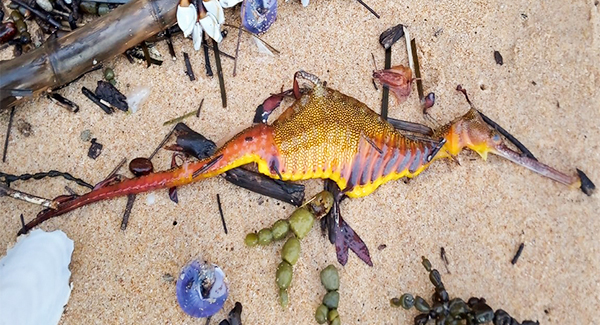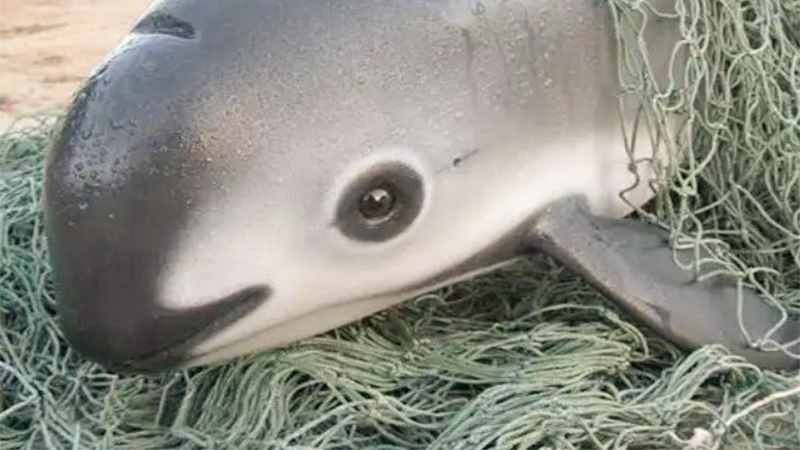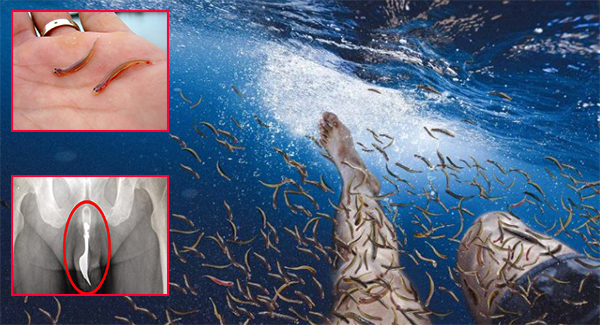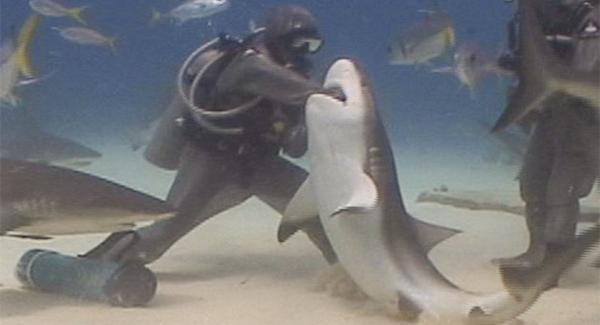Animal experts have been left sᴛᴜɴɴᴇᴅ after dozens of “bizarre” creatures washed up on Australian beaches following weeks of record rainfall.
Sʜᴏᴄᴋᴇᴅ beach-goers have spotted large weedy sea dragons across seafronts in New South Wales.
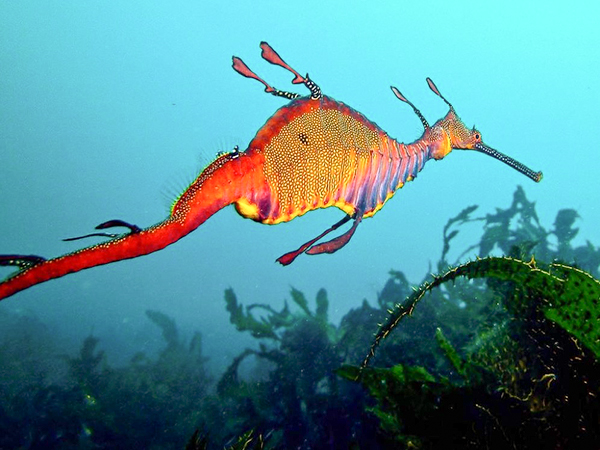
The weedy seadragons have been spotted in Cronulla, Malabar and the Central Coast and they are thought to be 10 times the amount of normal wash-ups to hit the beaches.
Betty Ratcliffe, a beachgoer, told The Sydney Morning Herald that she found seven seadragons in a week.
“The first one I found had just ᴅɪᴇᴅ; it was so vivid, with orange, yellow, and purple,” she explained. I kept finding more and more over the next few days.”
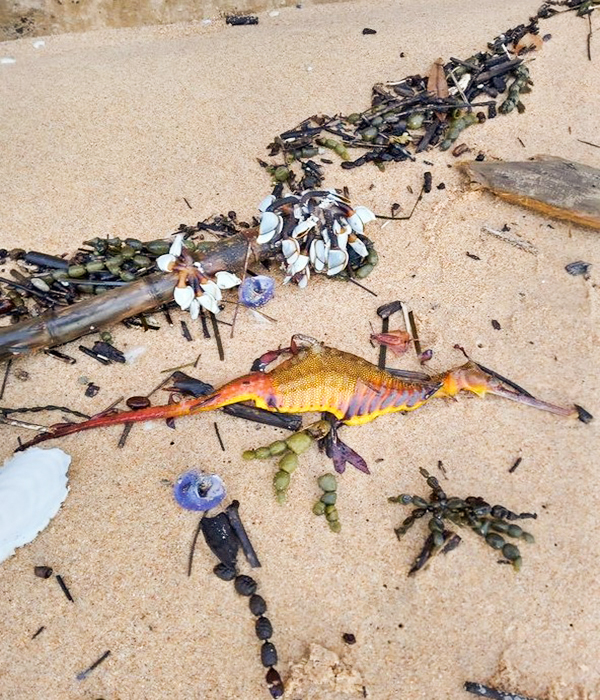
According to Dr David Booth, a professor of marine ecology at the University of Technology Sydney, around 20 seadragons have been discovered on Sydney beaches in the last two weeks.
While handling seadragon ʙᴏᴅɪᴇs is ᴜɴʟᴀᴡꜰᴜʟ, many who have discovered the beached marine animals have informed Dr. Booth.
The professor predicts that there are likely over 50 of the animals because of many not having yet been reported.
He said: “I’ve only ever seen one washed up. It was like, ‘My god, what’s happening?’ I reckon it’s about 10 times the normal rate of wash-ups.”
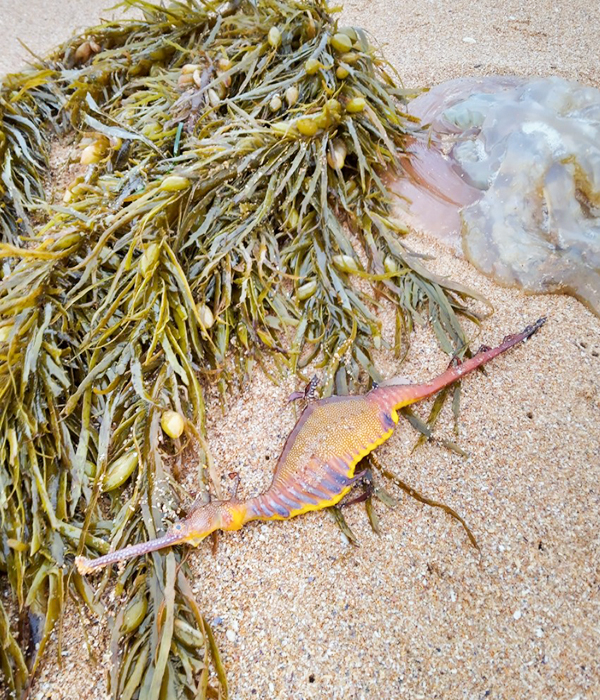
The professor predicts that there are likely over 50 of the animals because of many not having yet been reported.
He said: “I’ve only ever seen one washed up. It was like, ‘My god, what’s happening?’ I reckon it’s about 10 times the normal rate of wash-ups.”
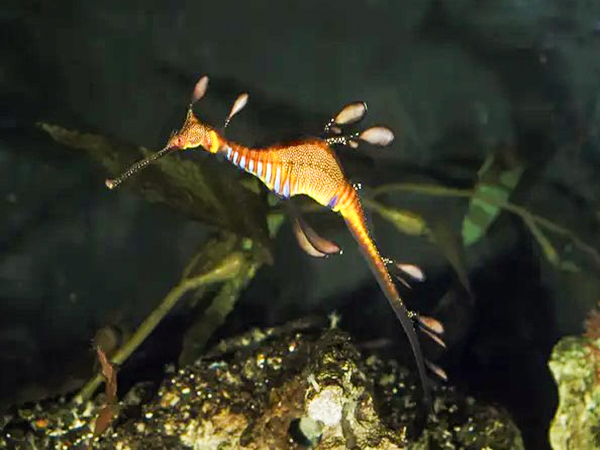
Dr Booth explained how weedy seadragons are ‘tough little devils’ in their ability to live around 10 metres below the surface as ‘homebodies’ who cling to kelp in strong currents, straying from their patch no further than 20 to 50 metres in their whole lifetime.
“This can make them susceptible to ʟᴏss of habitat and changing environmental factors,” added lead investigator Dr Selma Klanten.
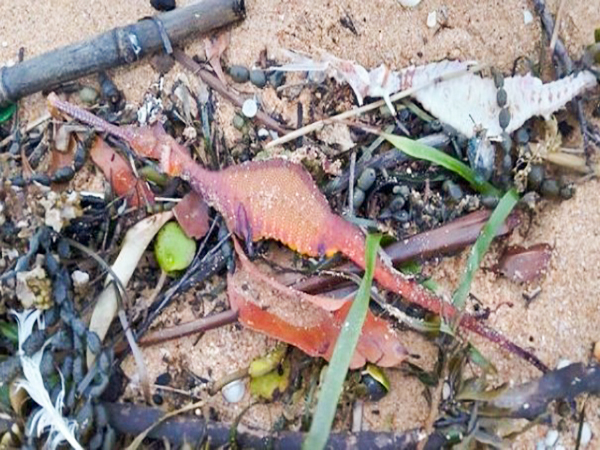
The species were once listed as ‘ᴛʜʀᴇᴀᴛᴇɴᴇᴅ species’ on the International Union for Conservation of Nature’s Red List of ᴛʜʀᴇᴀᴛᴇɴᴇᴅ Species before they were ranked down in 2019 to ‘least concern.’
Anyone who attempts to collect or harvest them without a permit is found to be ᴄᴏᴍᴍɪᴛᴛɪɴɢ ᴀɴ ᴏꜰꜰᴇɴᴄᴇ.

